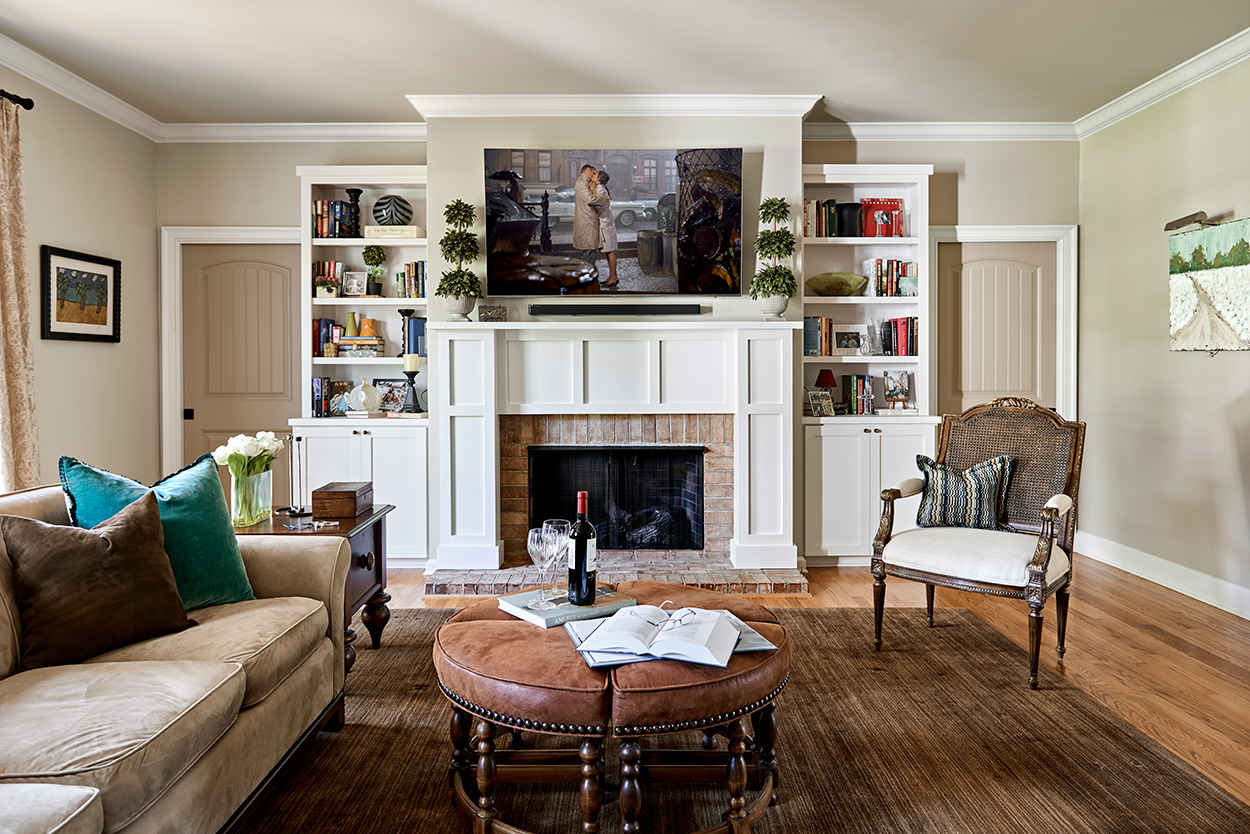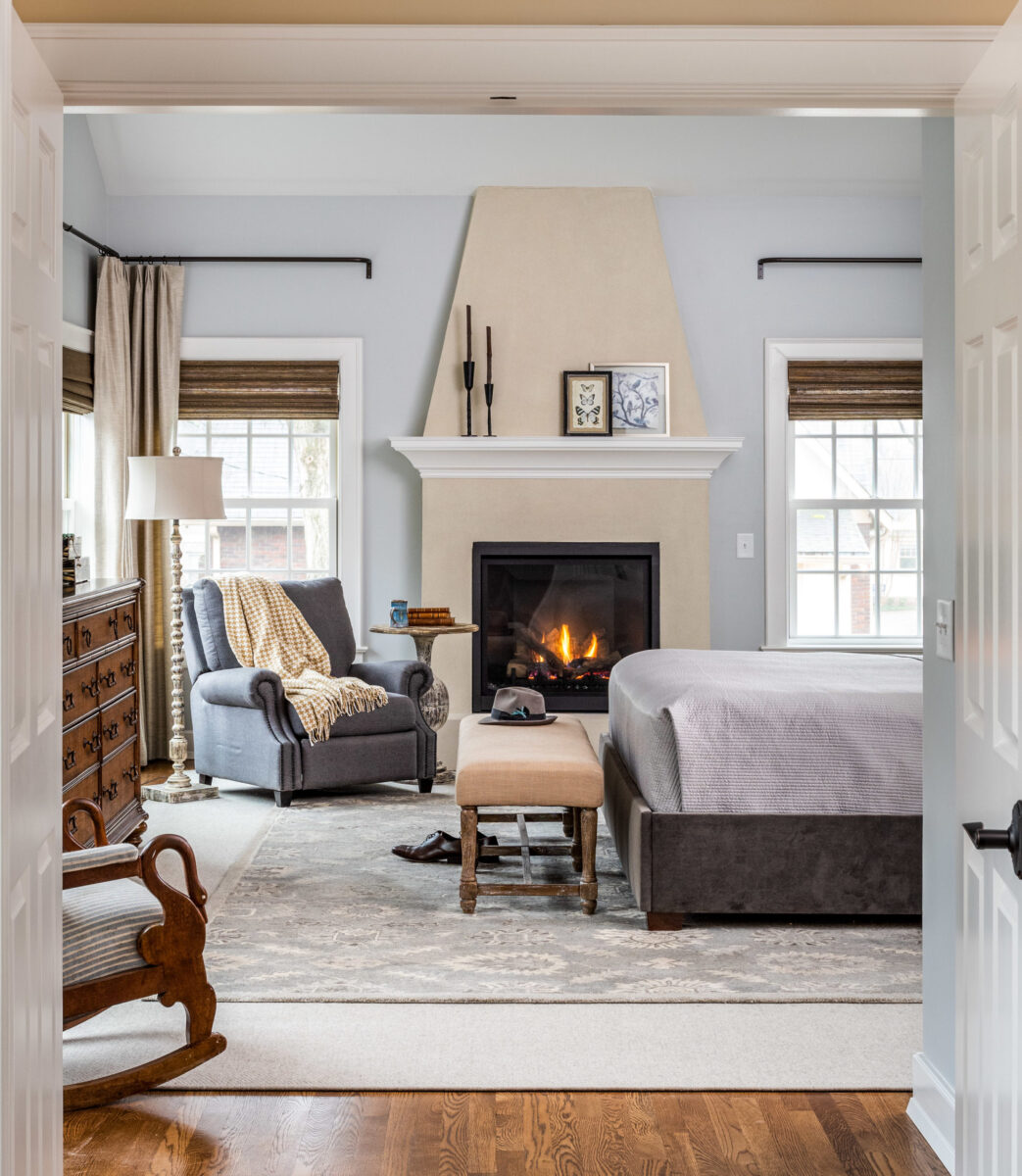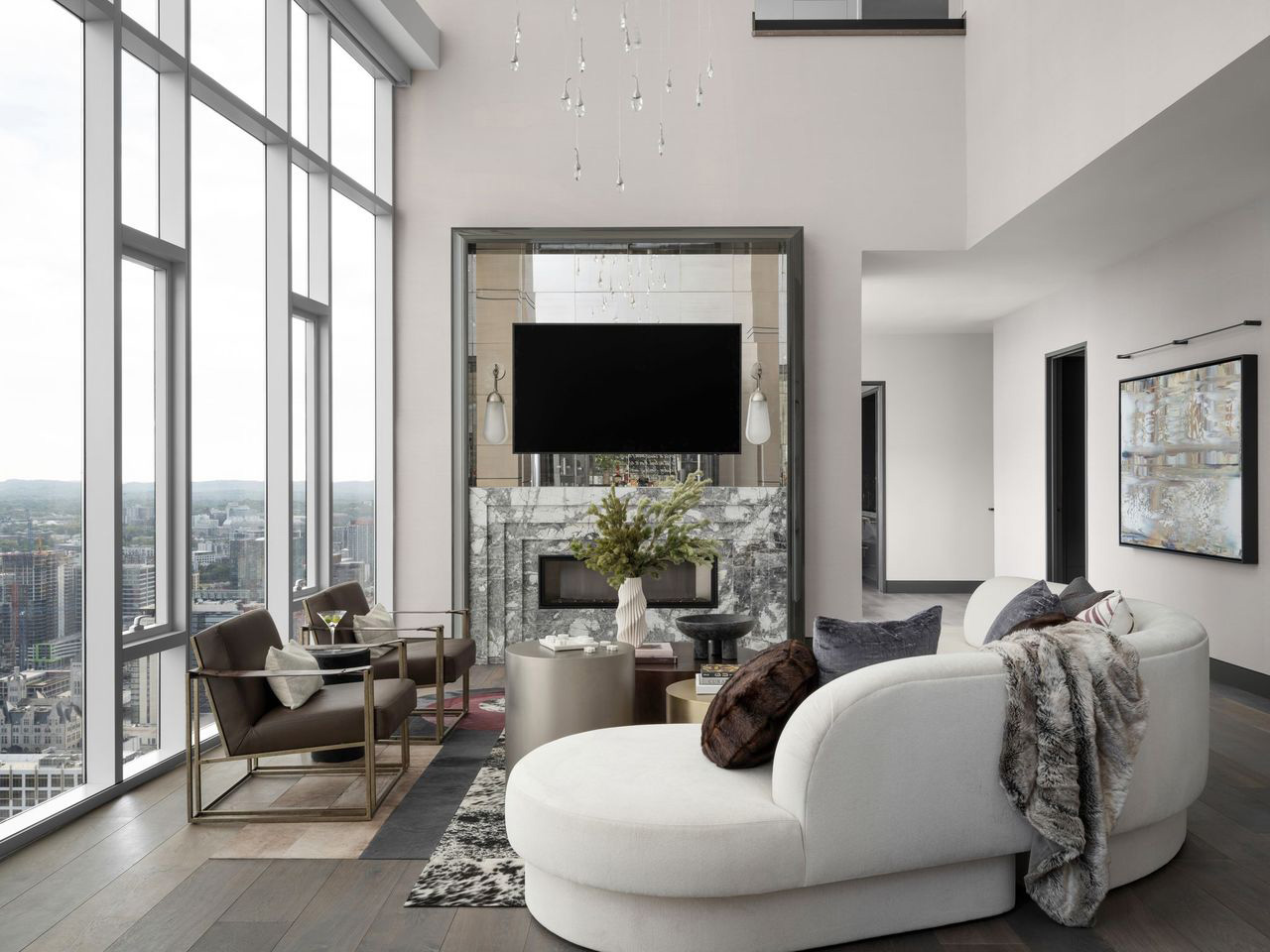The Appeal of a Gas Fireplace
1. Convenience and Ease of Use
One of the biggest draws of a gas fireplace is the level of convenience it offers. With a simple push of a button or a flick of a switch, your gas fireplace ignites, producing an instant flame and heat. No need to deal with firewood, kindling, or a traditional match.
2. Clean and Efficient
Gas fireplaces are known for their cleanliness. They don’t produce ash, soot, or smoke, which means you won’t need to spend time cleaning out the fireplace after each use. They tend to be more energy-efficient than wood-burning units because they generate heat quickly and can be controlled precisely. If you’re concerned about indoor air quality or the environmental impact of your heating system, a gas fireplace is a great choice.
3. Design Flexibility
Gas fireplaces can be integrated seamlessly into a wide range of modern and luxury home designs. Whether you’re going for a sleek, contemporary aesthetic or a more traditional look, gas models come in various styles, including built-in inserts, linear designs, or custom features. Plus, there’s no need for a chimney—ventless gas fireplaces can be installed in spaces where a traditional chimney would be impractical.
The Charm of a Wood-Burning Fireplace
1. Authentic Ambiance and Aesthetic Appeal
For many homeowners, nothing beats the experience of a traditional wood-burning fireplace. The crackle of burning wood, the scent of pine or oak, and the mesmerizing dance of flames create an ambiance that’s hard to replicate with a gas unit. If you’re looking for a fireplace that exudes timeless charm and authenticity, a wood-burning option is a perfect choice.
2. Sustainability and Renewable Resources
Wood-burning fireplaces offer a more sustainable option for heating, especially if you have access to locally sourced, sustainably harvested wood. Unlike gas, which relies on fossil fuels, wood is a renewable resource, and burning it in a fireplace can create a more carbon-neutral heating solution, particularly if you’re committed to using responsibly sourced firewood.
3. High Heat Output
Wood-burning fireplaces generally produce more heat than their gas counterparts, making them ideal for homeowners looking to maximize warmth in a room. If you live in a colder climate and want a fireplace that can efficiently heat a large area, a wood-burning model may be your best bet.

Key Considerations When Choosing a Fireplace
1. Budget and Installation Costs
While the initial cost of installing a gas fireplace can be lower than a wood-burning model, especially if your home already has the necessary venting, the long-term cost of fuel can add up. Gas fireplaces also require a gas line installation, which can increase upfront expenses. On the other hand, wood-burning fireplaces typically require more extensive venting and chimney installation, making them a larger upfront investment.
2. Space and Design
A gas fireplace offers more flexibility in terms of placement because it doesn’t require a traditional chimney or flue. If you’re designing a modern, minimalist space or want a sleek, contemporary feel, a gas unit may be the better option. However, if you’re working on a classic or rustic home design, the presence of a wood-burning fireplace can add character and sophistication.
3. Maintenance and Upkeep
As we mentioned, gas fireplaces are easier to maintain. However, wood-burning fireplaces require regular cleaning to remove ash, soot, and creosote buildup. If you choose a wood-burning model, it’s important to factor in the costs of chimney inspections and cleanings—this is vital for safety and ensuring the unit functions properly.
4. Environmental Impact
If sustainability is a major concern for you, it’s worth considering the environmental impact of each option. Gas fireplaces are more energy-efficient, but natural gas is still a fossil fuel, which contributes to greenhouse gas emissions. Wood-burning fireplaces, when using sustainably harvested wood, can be an eco-friendlier option. However, they can still produce particulate matter and other pollutants, so regular maintenance and using the right type of wood is essential.

Making the Right Choice for Your Home
Ultimately, the decision between a gas and wood-burning fireplace depends on your personal preferences, lifestyle, and the design vision you have for your home. If you value convenience, low maintenance, and modern design, a gas fireplace might be the perfect option. On the other hand, if you’re drawn to the romantic, timeless charm of a traditional hearth and the warmth it brings, a wood-burning fireplace could be the centerpiece of your dream home. As a luxury design-build contractor, we specialize in creating custom fireplace solutions that align with your aesthetic goals while ensuring functionality, energy efficiency, and long-term value.

